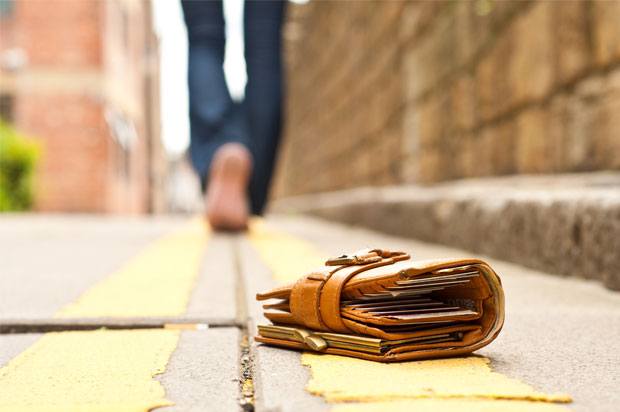Lost property

Lost property: when can you keep it?
It’s not as easy as finders keepers. In the UK, ‘theft by finding’ means that if you find a wad of cash on the street and don’t attempt to return it to its owner, you could actually be guilty of theft. But what about other stuff like mobile phones and clothes? And how long do the police keep lost property?
Here’s the legal lowdown you need if you stumble across lost property, stolen goods, or even treasure. Yarrr.
Can you keep lost property?
If you find goods that appear to be lost, then you can keep the goods as long as:
- You did not find the goods dishonestly or while trespassing.
- You take care of the goods – you will be liable for any damage caused to the goods while they are in your care.
- You did not find the goods on your employer’s property.
- The goods are lost, and not uncollected or abandoned, stolen or treasure.
- You have taken reasonable steps to find the owner of the goods.
- The goods were found not attached to anything on premises or land where the occupier does not exercise much control, for example, an air terminal lounge, public part of a shop, or recreation ground.
How long do the police keep lost property?
To save money and time, police forces across the UK stopped processing most lost property items and enquiries from February the 1st, 2019. They will accept cash, firearms, and ammunition, and anything suspected to have been involved in a crime, but that’s about it.
This makes the concept of ‘theft by finding’ all the more complicated because, according to the 1968 Theft Act, a person can be convicted of theft if they ‘dishonestly appropriate property belonging to another’. And lost property will continue to ‘belong to another,’ unless it has genuinely been abandoned by the owner. How do you know whether something has been genuinely abandoned? We have no idea.
If you find someone’s wallet (bank card, passport, etc) and it has an address in it, you’ve obviously got a good chance to locate that person, and if you find money, guns or ammunition you can hand it into the police, but otherwise you’re in a bit of a grey area, legally speaking.
Smaller amounts of money (say £20 or under), probably aren’t going to be traced by anyone, but if you find it at a cashpoint you should hand it in to the police in case it was reported lost and CCTV footage is used.
The police lost property number depends on your local constabulary, so give it a Google.
Uncollected or abandoned goods
If you have uncollected or abandoned goods you have a duty to look after them, but cannot use them or treat them as your own. You will be liable for any damage caused to the goods while they are in your care.
If you’ve made steps to find and contact the original owner and they fail to collect the goods within a reasonable period, you can sell them as long as you can prove you’ve followed the correct procedure. These days that appears to mean going to a police station and being told they don’t handle lost property anymore.
Stolen goods
When goods are stolen, the original owner still has a legal right of ownership over the goods. When stolen goods are found, a court can order the return of the goods or the finder can be ordered to pay compensation to the original owner.
If someone receives stolen goods, even if they’ve paid a fair price and are unaware that the goods were stolen, the general rule is that the person with the goods does not usually get a legal right of ownership. The person with the goods must inform the owner and allow them to take them away, if they discover that they were stolen.
Finding treasure
Treasure is the property of the Crown. Anyone who finds treasure should report this directly to the coroner for the district where the object was found within fourteen days of the find (or of first having reason to believe the object may be treasure). A finder who fails to report a discovery without a reasonable excuse will be committing a criminal offence.
If using a metal detector, you should follow the rules. You must get the landowner’s permission before searching on private land.
Sea and seashore
Property found in the sea or the seashore could be from a ship and is known technically as ‘wreck’. All wreck must be reported to the Receiver of Wreck.
Next Steps
- Chat about this subject on our Discussion Boards.
By The Mix Staff
Updated on 21-Apr-2023
No featured article










